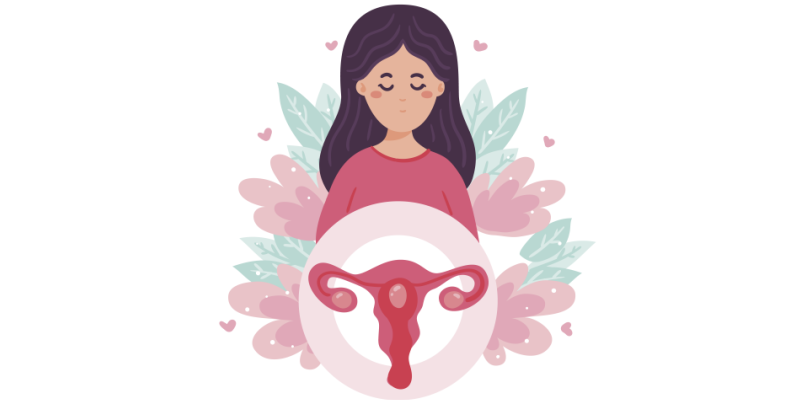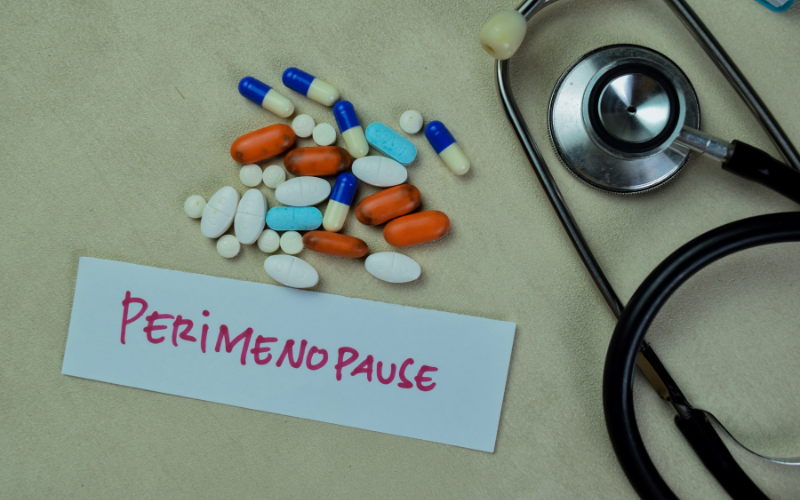Perimenopause represents one of the most significant transitions in a woman’s life, yet it remains shrouded in mystery for many. This natural biological process, often called the “menopausal transition,” marks the beginning of your body’s journey toward menopause and can bring about profound physical and emotional changes that may last several years.
Unlike menopause itself, which is defined as 12 consecutive months without a menstrual period, perimenopause is an extended transitional phase that can begin anywhere from your mid-30s to early 50s, with the median age being 47.5 years. This transition typically lasts between two to eight years, though some women may experience it for as little as a few months or as long as a decade.
The hallmark of perimenopause lies in the fluctuating hormone levels, particularly estrogen and progesterone, which begin their natural decline as your ovaries gradually reduce their function. These hormonal shifts create a cascade of symptoms that can range from barely noticeable to significantly disruptive to daily life. Understanding what to expect during this phase empowers you to recognize the changes, seek appropriate support, and implement strategies to manage symptoms effectively.
Every woman’s perimenopause experience is unique and influenced by genetics, lifestyle factors, health, and individual hormone sensitivity. While some women sail through this transition with minimal disruption, others may find themselves dealing with a complex array of physical and emotional symptoms that require active management and sometimes medical intervention.
Physical Symptoms: Your Body’s Response to Hormonal Changes

Menstrual Irregularities
The most common and often first sign of perimenopause is irregular periods. Your once-predictable menstrual cycle may become erratic, with periods that are shorter, longer, heavier, or lighter than usual. You might experience spotting between periods, skip months entirely, or have cycles that vary dramatically in length. These changes occur because ovulation becomes increasingly irregular as your ovaries produce less estrogen.
Vasomotor Symptoms
Hot flashes and night sweats affect an estimated 35-50% of perimenopausal women. These sudden waves of intense heat typically begin in the scalp, face, neck, or chest and can last 5-10 minutes. The intensity varies dramatically among women – some experience mild warmth while others may end up completely drenched in sweat. Night sweats can significantly disrupt sleep patterns, leading to daytime fatigue and irritability.
Sleep Disturbances
Approximately 40% of perimenopausal women experience sleep problems. While night sweats contribute to sleep disruption, insomnia can occur even without them. Sleep cycles naturally change with age, but hormonal fluctuations during perimenopause can exacerbate these issues, making it difficult to fall asleep or stay asleep throughout the night.
Physical Discomfort and Changes
Joint and muscle pain becomes more common during perimenopause due to estrogen’s anti-inflammatory properties diminishing. Many women notice increased stiffness and aches, particularly in the knees, elbows, hands, and feet. Weight gain, especially around the abdomen, is another frequent complaint as metabolism slows and hormonal changes affect fat distribution.
Vaginal dryness and changes in sexual function occur as declining estrogen levels cause vaginal tissues to lose lubrication and elasticity. This can make intercourse uncomfortable or painful and may increase susceptibility to urinary tract infections.
Emotional and Mental Health Changes

Mood Fluctuations
Perimenopause can significantly impact emotional well-being, with mood swings, irritability, and increased anxiety being common experiences. Irritability ranks as the top complaint among perimenopausal women, triggered by extreme hormone fluctuations that affect neurotransmitter systems in the brain. These mood changes can feel overwhelming and may be compounded by sleep disruption and life stressors.
Cognitive Changes
Many women report experiencing “brain fog” during perimenopause, characterized by difficulty concentrating, forgetfulness, and trouble focusing. While estrogen and progesterone play roles in maintaining brain function, the relationship between hormonal changes and cognitive symptoms is complex and may be influenced by sleep quality, stress levels, and other factors.
Depression and Anxiety
Mental health conditions like depression are more common during perimenopause, with estimates suggesting 10-20% of women experience mood symptoms during this transition. Anxiety may feel manageable initially, but can intensify as perimenopause progresses. The unpredictability of symptoms and physical changes can create additional stress and worry about the future.
Managing Perimenopause Symptoms Naturally

Lifestyle Modifications
Regular exercise stands out as one of the most effective ways to manage perimenopausal symptoms. Physical activity helps reduce hot flashes, improve mood, boost energy levels, and support healthy weight management. Aim for at least 30 minutes of moderate-intensity exercise most days of the week, incorporating both cardiovascular activities and strength training.
Dietary Approaches
A balanced diet rich in fruits, vegetables, and whole grains can help ease symptoms and support health during perimenopause. Focus on nutrient-dense foods while limiting processed foods, sugary drinks, and unhealthy fats. Adequate calcium intake (1,000-1,200 mg daily) becomes particularly important as bone loss accelerates with declining estrogen levels.
Stress Management
Since stress can worsen perimenopause symptoms, developing effective stress management techniques is crucial. Yoga, meditation, deep breathing exercises, and spending time in nature can help reduce stress levels and improve well-being. Some women find counseling or therapy beneficial for developing coping strategies.
Sleep Hygiene
Prioritizing good sleep habits can significantly improve energy levels and mental clarity. Establish a consistent sleep schedule, create a relaxing bedtime routine, and ensure your bedroom is dark, quiet, and cool. Consider using cooling products like chill pillows or moisture-wicking sleepwear to manage night sweats.
When to Seek Medical Support
While perimenopause is a natural process, you don’t have to suffer through severe symptoms alone. Consult with your healthcare provider if symptoms significantly impact your quality of life, work performance, or relationships. Medical treatments may include hormone therapy, selective estrogen receptor modulators (SERMs), antidepressants, or other medications, depending on your specific symptoms and health profile.
Your healthcare provider can also help rule out other conditions that may mimic perimenopause symptoms and develop a personalized treatment plan that addresses your unique needs and concerns.
Looking Forward: Embracing the Transition
Perimenopause, while challenging, represents a natural and normal part of aging. Understanding what to expect can help you prepare for and navigate this transition more confidently. Remember that symptoms are typically most severe during the early stages and generally diminish over time. With proper support, lifestyle modifications, and medical care when needed, you can maintain your quality of life and emerge from this transition feeling empowered and healthy.

